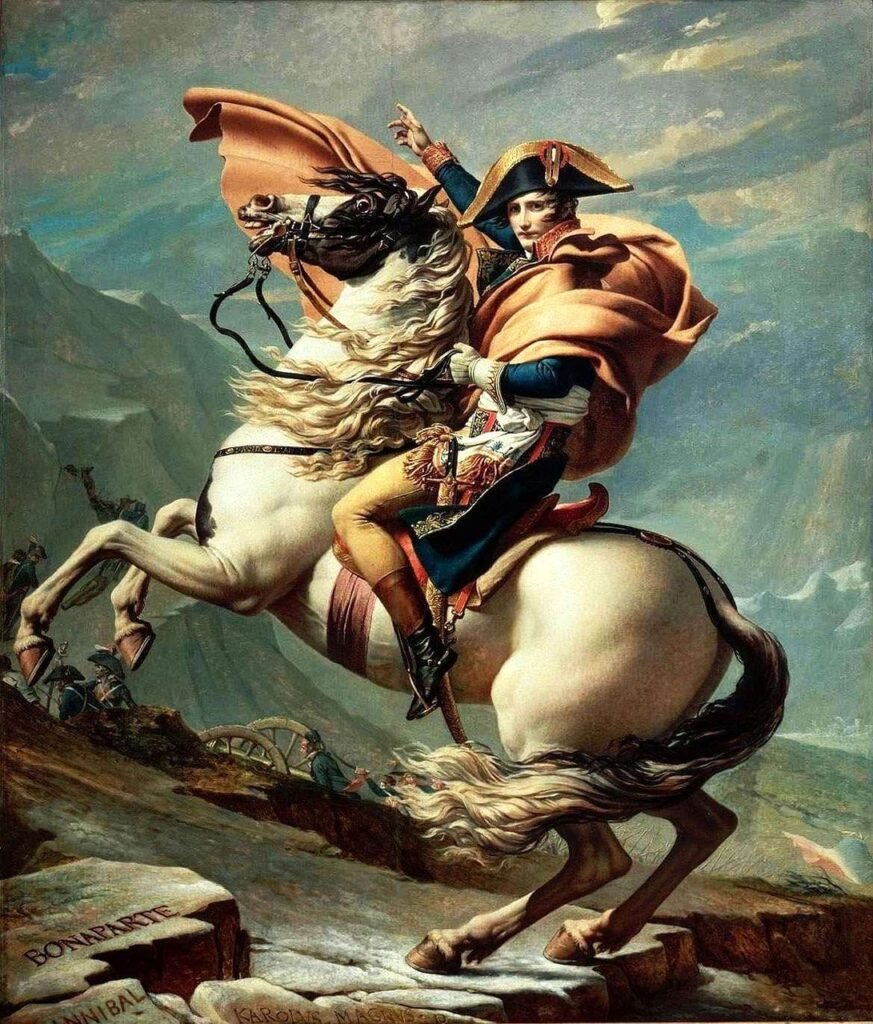Napoleon Bonaparte, a towering figure in European history, was a military general and emperor of France who rose to prominence during the French Revolution. Here are some key facts about Napoleon
- Early Life: Napoleon Bonaparte was born on August 15, 1769, in Ajaccio, Corsica, which was then part of the French Republic. He came from a relatively modest noble family and received a military education at the École Militaire in Paris.
- Military Genius: Napoleon rose to prominence during the French Revolution and became known for his military brilliance and strategic acumen. He quickly ascended the ranks of the French military and became a general at a young age.
- Rise to Power: In 1799, Napoleon staged a coup d’état and overthrew the French Directory, establishing himself as the First Consul of France. He later proclaimed himself Emperor of the French in 1804, effectively becoming the ruler of France.
- Napoleonic Code: One of Napoleon’s most enduring legacies is the Napoleonic Code, a comprehensive legal system that laid the foundation for modern civil law. The code introduced many principles of equality, individual rights, and secularism.
- Military Campaigns: Napoleon’s military conquests expanded the French Empire to its greatest extent, encompassing much of continental Europe. His campaigns, including the Napoleonic Wars, reshaped the political landscape of Europe and influenced international relations for decades.
- Battle of Waterloo: Napoleon suffered a decisive defeat at the Battle of Waterloo in 1815, marking the end of his rule as Emperor of the French and the conclusion of the Napoleonic Wars. He was subsequently exiled to the remote island of Saint Helena in the South Atlantic, where he spent the remainder of his life in exile.
- Height Controversy: Despite popular belief, Napoleon was not exceptionally short. He was actually around 5 feet 6 inches tall, which was average for men of his time. The misconception of his short stature may have originated from British propaganda during his lifetime.
- Legacy: Napoleon’s legacy is complex and multifaceted. He is remembered as a brilliant military strategist, a visionary leader, and a champion of revolutionary ideals. However, his authoritarian rule and imperial ambitions also led to widespread conflict and suffering throughout Europe.
- Art Patronage: Napoleon was a patron of the arts and played a significant role in promoting cultural institutions and supporting artists and intellectuals. He established the Louvre Museum in Paris and commissioned numerous works of art to celebrate his military victories and promote French culture.
- Influence on European Politics: Napoleon’s rise to power and military campaigns had a profound impact on the course of European history. His conquests and the subsequent Congress of Vienna reshaped political boundaries and power dynamics on the continent, setting the stage for the modern era.
